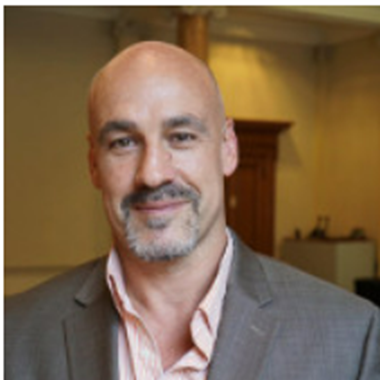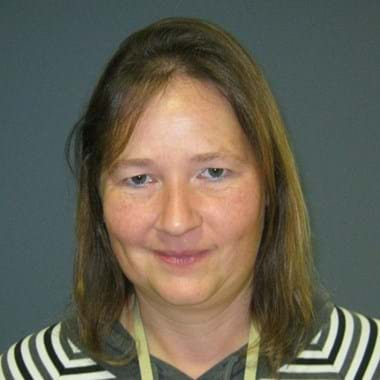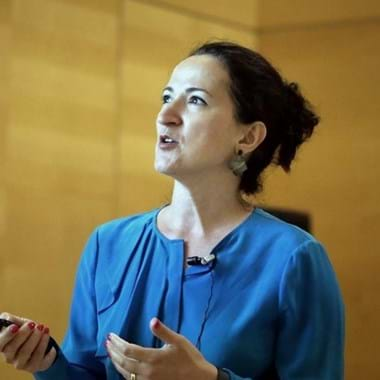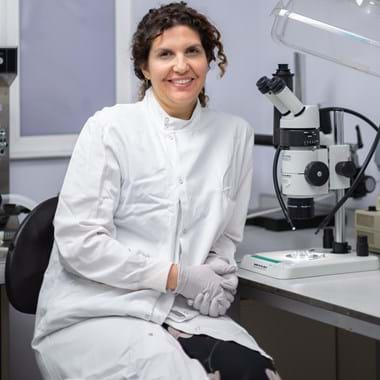RAB TEST
Our Research Advisory Board comprises experts in a wide variety of research disciplines to ensure that all applications are assessed knowledgably and fairly.
As a member of the Association of Medical Research Charities we are committed to maintaining a rigorous peer review process for the assessment of research applications, for which the Advisory Board are responsible. This process, carried out in a fair and transparent way, ensures that only the highest quality research at the best institutions receives DRWF funding
We endeavour to maintain a fair balance of experience and scientific disciplines within our Research Advisory Board and draw upon additional external expertise, as necessary, to ensure robust review of applications for funding. Board members serve a rotational term of office for a 3-year period which can be extended for a further 2 years.
Our processes operate within the parameters of a Conflict of Interest Policy. This policy relates to all advisory board members, the Board of Trustees, reviewers and anyone involved in the review of funding applications and/or the approval of funding recommendations. The purpose of this policy is to minimise the potential for conflicts of interest arising and to protect the charity and those who work for it from any perception, real or otherwise, that the external interests and affiliations of its Boards/Committees might interfere with the independence of its decision making in furtherance of carrying out the charity’s activities. The policy identifies potential conflicts of interest and sets out how to record and manage them.
We seek the views of people living with diabetes through our Wellness Action focus groups and have lay representation on our Diabetes Wellness Editorial Advisory Board which secures user opinion and involvement across all of our charitable activities.
You can read our conflict of interest policy here.

Professor Angela Shore, University of Exeter Medical School
Chairman
Professor Angela Shore is the inaugural Vice-Dean Research for the University of Exeter Medical School, and was previously Interim Vice-Dean Research for the Peninsula College of Medicine and Dentistry since 2009. She is the Scientific Director of the NIHR Exeter Clinical Research Facility for Experimental Medicine and Associate Director for Experimental Medicine for the UKCRN diabetes research network.

Dr Mark Evans, University of Cambridge
Mark Evans is a University Lecturer in the Institute of Metabolic Science and Department of Medicine, University of Cambridge and an Honorary Consultant Physician in Medicine and diabetes at the Addenbrookes teaching hospital in Cambridge (Cambridge University Hospitals NHS FT). His particular interests are in type 1 diabetes, structured education, devices and technology including insulin pumps, continuous glucose monitors and automated insulin delivery, hypoglycaemia and brain nutrient sensing.

Professor Peter Jones, King's College London
Peter Jones is Professor of Endocrine Biology in the Diabetes Research Group at the Guy’s campus of King’s College London. Peter obtained his PhD at the National Institute for Medical Research (London) studying peptide hormones in the central nervous system. His research interests remain with the β-cell, with current focus on cell-cell interactions within islets of Langerhans, strategies for improving islet transplantation therapy for Type 1 diabetes and novel therapeutic targets for Type 2 diabetes.

Dr Angus Jones, University of Exeter
Angus is a NIHR Clinician Scientist at the University of Exeter and an Honorary Consultant Physician in the Royal Devon and Exeter Hospital. His research focuses on clinical questions directly relevant to the management of diabetes. His interests include developing a stratified (or personalised) approach to the management of type 2 diabetes, diabetes classification and the assessment of endogenous insulin secretion (C-peptide) in the clinical management of diabetes.

Dr Katharine Owen
Dr Katharine Owen is an Associate Professor and Consultant Physician at the Oxford Centre for Diabetes, Endocrinology and Metabolism (OCDEM). Her interests are in the areas of investigation of genetic aetiology of diabetes in young adults, identification, characterisation and clinical management of rare kinds of diabetes and building an assessment of aetiology into care pathways for newly-diagnosed young adults with diabetes. She is also involved in clinical trials in OCDEM for newly diagnosed type 1 diabetes through the UK Type 1 diabetes Immunotherapy Consortium.

Professor Robert Semple, University of Edinburgh
Prof Semple is a diabetologist and endocrinologist based at the Centre for Cardiovascular Science at the University of Edinburgh. He is a Wellcome Trust Senior Research Fellow in Clinical Science, and Dean of Postgraduate Research at the University of Edinburgh. Over the past 15 years his clinical and research interests have centred on severely insulin resistant diabetes, lipodystrophy and hypoglycaemia, both genetic and acquired.

Professor Susan Ozanne, University of Cambridge
Susan Ozanne is Professor of Developmental Endocrinology at the University of Cambridge Institute of Metabolic Science Metabolic Research Laboratories and the MRC Metabolic Diseases Unit. She then obtained her PhD from the University of Cambridge in 1994. Prior to her current appointment she was a British Heart Foundation Senior Fellow. Professor Ozanne is the author of over 250 papers on the early origins of health and disease and is an elected member of the council of the Society for the Developmental Origins of Health and Disease.

Professor Mirela Delibegovic, University of Aberdeen
Prof Mirela Delibegovic is currently the Dean for Industrial Engagement in Research and Knowledge Transfer at the University of Aberdeen and the Director (Diabetes) of the Aberdeen Cardiovascular and Diabetes Centre. Prof Delibegovic’s research for the past 20 years has focused on the causes and consequences of development of diabetes and the complications associated with diabetes. In recent years, she has been investigating the molecular link between diabetes and Alzheimer’s disease and how these may be affected by different nutritional interventions.

Dr Victoria Salem, Imperial College London
Victoria is a Senior Clinical Lecturer in Bioengineering at Imperial College London and Honorary Consultant in Diabetes, Endocrinology and General Internal Medicine. Her research interests are in neuroendocrinology and the gut brain axis as applied to the treatment of obesity and Type 2 Diabetes. She is committed to making clinical academia more inclusive and has won the Julia Higgins award for her "powerful advocacy for female academic staff, and her formal and informal mentorship of junior academics."

Professor Ketan Dhatariya, University of East Anglia
Professor Ketan Dhatariya is a full time NHS clinician and his predominant areas of interest are inpatient diabetes – in particular peri-operative diabetes care, the management of diabetes related emergencies, and the ‘diabetic foot’. He leads one of the largest foot clinics in the East of England. Dr Dhatariya has over 150 peer reviewed publications, and has published over a dozen book chapters on inpatient diabetes, peri-operative diabetes care or on the diabetic foot.

Mr John Casey, Royal Infirmary of Edinburgh/University of Edinburgh
Mr John Casey (MB ChB, PhD, FRCS(Glasg), FRCS(Ed), FRCS(Gen Surg), FRCP Edin) is a Consultant Transplant Surgeon at the Royal Infirmary of Edinburgh and Honorary Reader at the University of Edinburgh. He is Director of the Scottish National Islet Transplant Service and Lead Clinician for Organ Transplantation in Scotland. He is also Chair of the UK Islet Steering Group and Advisor to the Scottish Government on organ transplantation. Mr Casey co-chairs the Scottish Donation and Transplant Group and is Vice Chair of the European Pancreas and Islet Transplant Registry.
How We Can Help at DRWF
Events
Each year we run events for people living with diabetes, ranging from educational workshops and wellness events, to fundraising marathons and group skydives. To find out more about our events and how we support people living with diabetes, please visit our Events Page.
Research
Since 1998 we have provided over £12 million of funding for medical research programmes, with the aim of finding a cure for all types of diabetes. In 2004, we made a significant commitment to Islet Cell Research and Transplant, a programme which focuses on the role of islet cells in diabetes. Read more about our commitment to research by visiting our Research Page.
Fundraising
We rely on our amazing donors who raise the funds that help support people living with diabetes across the UK, as well as funding our vital research programmes. There are lots of ways to raise money to support people living with all forms of diabetes, there’s something for everyone! To discover more about fundraising with us, please visit our Fundraising Page.
Donate Today!
I would like to make a regular donation of
I would like to make a single donation of